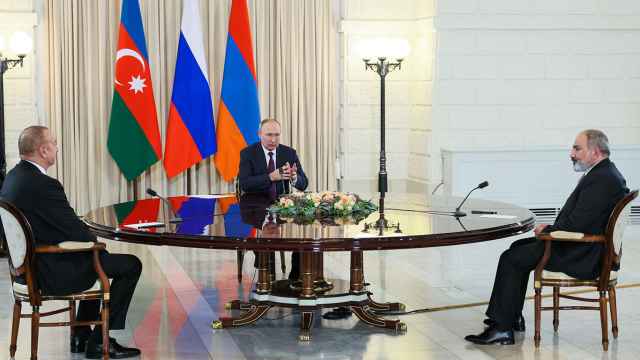It would be perversely ironic if Edward Snowden's crusade against the U.S. government Internet surveillance programs resulted in less Internet freedom in Russia.
State Duma deputies reacted with outrage to Snowden's revelations that U.S. Internet giants like Microsoft, Apple, Google, Facebook and Twitter provided the National Security Agency with information on their foreign clients' online activities. Sergei Zheleznyak, deputy Duma speaker from United Russia, promised to introduce legislation that would protect the personal data of Russian citizens by requiring international Internet companies to locate their computer servers under Russian jurisdiction as a condition of continuing their operations here. He called this a defense of Russia's "digital sovereignty."
Let's get a few things straight here.
Spying on foreigners, as opposed to spying on your own citizens, is not a violation of human rights or a breach of international laws. It is called collecting foreign intelligence. For any intelligence service, foreigners and their personal communications are fair game. It's what taxpayers pay their spooks to do.
Sharing personal data with an Internet service is a private decision. If you want to use the service, and you agree to share your personal data as a condition of usage, there is nothing for the government to "protect."
The real objective of the "digital sovereignty" plan is to obtain the technical capability to quickly establish the true identities of Russian account holders on Facebook, Twitter, Gmail, YouTube and Skype and monitor in real time their online activities. Or to create legal grounds for forcing the U.S. Internet giants out of the Russian market if they do not comply. On similar pretexts, China bans Facebook and Twitter, while Google withdrew from the Chinese market in 2010.
The desire to create a Russian version of PRISM reflects the government's concern with the quick mobilization capabilities that U.S. social networks provide to the opposition. Deputy Prime Minister Dmitry Rogozin and FSB Director Alexander Bortnikov have publicly warned against the subversive influences of foreign social networks. Others called for banning the use of Gmail by government employees.
Building up domestic cloud storage and restricting the use of foreign cloud services at sensitive government agencies are reasonable ideas. Harassing international Internet giants into facilitating spying on Russian citizens is not. "Digital sovereignty" will not protect our privacy but will limit our choices and freedom.
Vladimir Frolov is president of LEFF Group, a government relations and PR company.
A Message from The Moscow Times:
Dear readers,
We are facing unprecedented challenges. Russia's Prosecutor General's Office has designated The Moscow Times as an "undesirable" organization, criminalizing our work and putting our staff at risk of prosecution. This follows our earlier unjust labeling as a "foreign agent."
These actions are direct attempts to silence independent journalism in Russia. The authorities claim our work "discredits the decisions of the Russian leadership." We see things differently: we strive to provide accurate, unbiased reporting on Russia.
We, the journalists of The Moscow Times, refuse to be silenced. But to continue our work, we need your help.
Your support, no matter how small, makes a world of difference. If you can, please support us monthly starting from just $2. It's quick to set up, and every contribution makes a significant impact.
By supporting The Moscow Times, you're defending open, independent journalism in the face of repression. Thank you for standing with us.
Remind me later.







